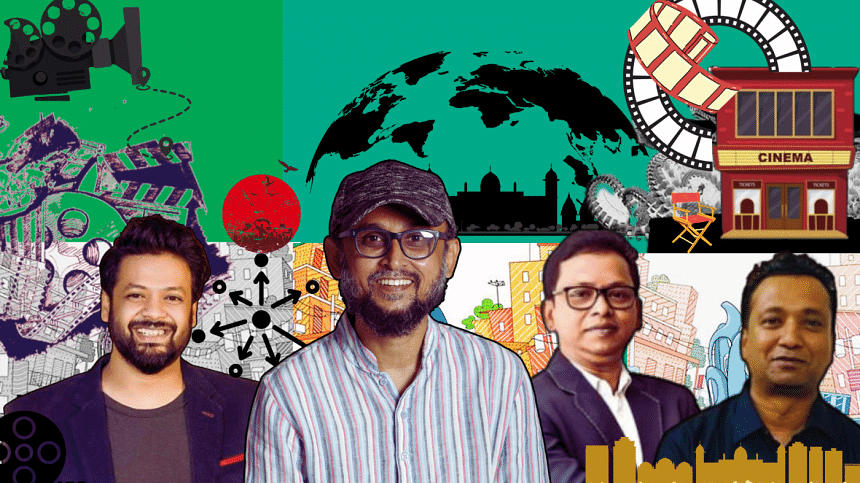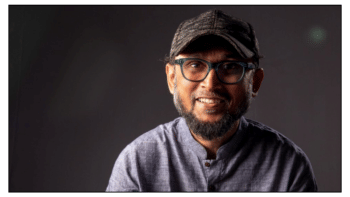'Monsoon Revolution' workshop committee unveiled: What are the plans?

Establishing a professional and structured film industry in Bangladesh has long been an ambitious yet elusive dream, often hindered by persistent challenges. However, a recent initiative announced by Cultural Adviser Mostofa Sarwar Farooki at a recent press conference aims to turn this vision into reality and build a professional film industry in the country.
As part of this vision, Farooki outlined the "seven priority programmes" initiated by the Ministry of Cultural Affairs. One of the flagship projects, titled Monsoon Revolution, seeks to decentralise filmmaking and nurture regional talents. To implement this vision, a four-member search committee has been formed.
The committee is chaired by Nafriza Shyama, additional secretary of the Ministry of Cultural Affairs, and includes prominent figures from the private sector– Dr Sumon Rahman, a celebrated writer and mass communication educator; filmmaker Tanim Noor; and producer-director Adnan Al Rajeev. They are joined by representatives from the Cabinet Division, the Ministry of Information and Broadcasting, the Ministry of Civil Aviation and Tourism, and Syed Jamil Ahmed, director general of the Bangladesh Shilpakala Academy.
Their primary responsibility is to select eight distinguished filmmakers who will lead workshops in eight divisional cities. Each filmmaker will mentor participants through hands-on training and direct a 40-minute film as part of the programme. This initiative aims to equip emerging filmmakers with the skills necessary to excel in the industry.
During a conversation with The Daily Star, Mostofa Sarwar Farooki explained the significance of this initiative.
"As discussed during the press conference on November 21, Under the Monsoon Revolution project, eight established filmmakers will conduct workshops in eight divisions. Aspiring filmmakers will learn the craft directly from these directors. Following the workshops, 10 participants from each division will work as assistant directors on the films created by their mentors. This will result in eight films and nurture 80 budding filmmakers who can carry the industry forward."
Farooki described this effort as a transformative step toward decentralising the industry and empowering young talents to pursue their filmmaking aspirations.
Adnan Al Rajeev also highlighted the significance of the initiative, stating, "We are currently awaiting a meeting where we will collectively decide which filmmakers will take on the projects. We definitely want to move forward with the finest makers, depending on their availability. Personally, I am fully aware of the responsibility and importance of this initiative. I believe this is a groundbreaking idea for our country. While Dhaka has historically been the main hub for entertainment, I hope this effort will expand opportunities to all divisions, allowing filmmakers to emerge from every corner of the nation."
He further added, "Now is the time to tell our stories on both national and international platforms. This initiative provides a chance to ensure that the next generation of filmmakers can contribute to the global stage."
Filmmaker Tanim Noor shared his perspective on the decentralisation of cultural activities. "Our industry is highly Dhaka-centric. However, projects like Shaaticup have demonstrated the potential of regional talents. Unfortunately, many lack professional training and resources, which limits their ability to succeed. This initiative bridges that gap by providing essential training and creative freedom for regional artists to thrive."
The Monsoon Revolution represents an unprecedented effort by the government to decentralise and professionalise the Bangladeshi film industry. By fostering regional talent and offering a platform for diverse storytelling, this initiative aims to reshape the industry. More than just an effort to develop skilled filmmakers, it is a step toward amplifying Bangladeshi narratives and creating works that resonate both nationally and internationally.

 For all latest news, follow The Daily Star's Google News channel.
For all latest news, follow The Daily Star's Google News channel. 










Comments